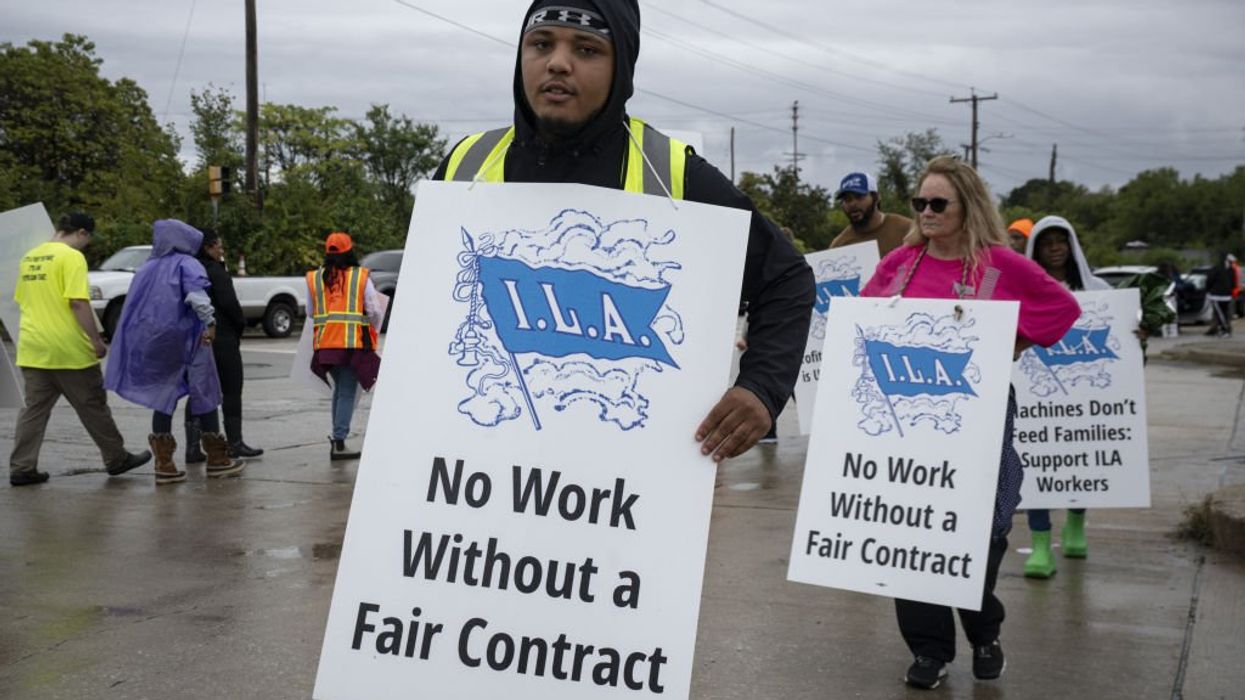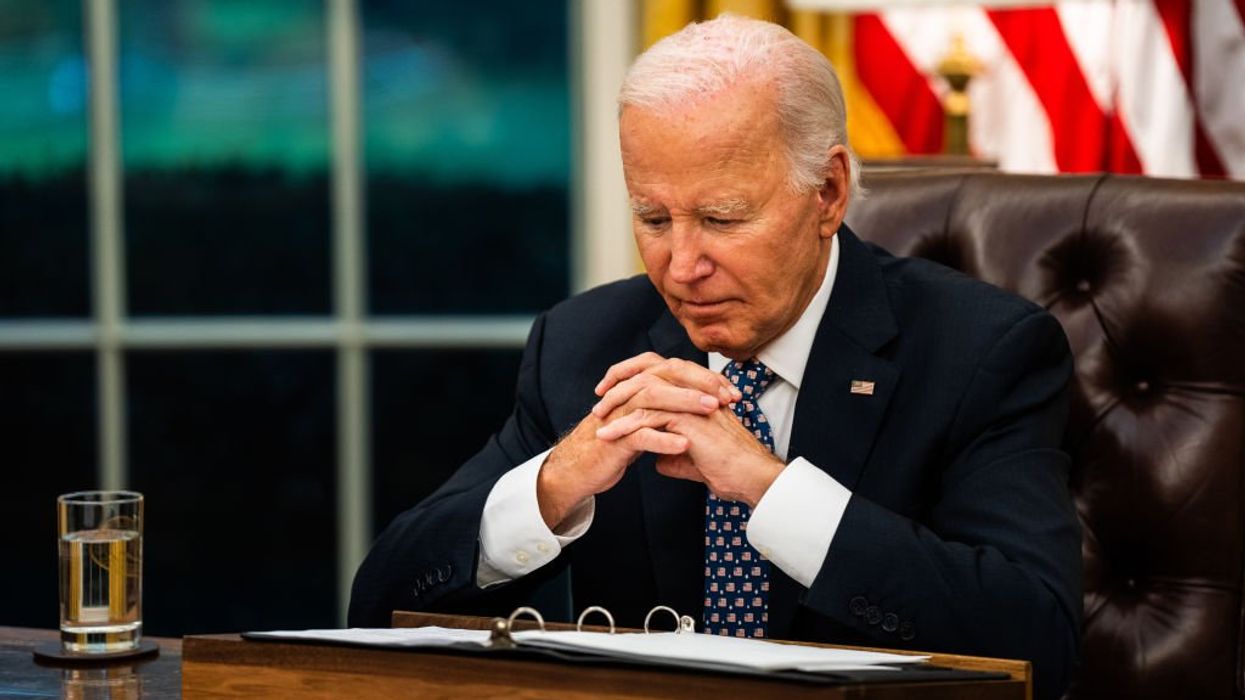At midnight on September 30th, dockworkers across the East Coast went on strike, effectively cutting the country's import and export capabilities in half.
Don't go out and panic buy a pallet of toilet paper and instant ramen just yet. It's going to take some time for the full effects of the strike to be felt and hopefully, the strike will be good and over by then. But there are no guarantees, and this election cycle could get significantly more insane as we draw near to the election. And even if the strike is settled quickly, it shows growing cracks in our infrastructure and industrial capacity that needs to be addressed if America wants to maintain its global dominance.
Here is everything you need to know about the dockworker strike:
What do the dockworkers want?

Anadolu / Contributor | Getty Images
As with most strikes, pay is the driving factor behind this situation the country now finds itself in. The longshoremen want more pay, and with rising inflation who can blame them? After all, working the docks is hard and dangerous business, and fair compensation only seems... fair. But when you compare the wage of a dockworker, which is around $100,000 to $200,00 a year to the average income in America of $56,000, suddenly they seem significantly less sympathetic.
How much money are they asking for? For most Americans, a three percent raise is considered high, but the unions are asking up to 15 percent, depending on location. On top of that, they are asking for a 77 percent raise over the next six years. The West Coast dock workers recently made off with a 36 percent raise and were considered lucky. These increases in costs are just going to be transferred to the end consumer, and we'll likely see a jump in prices if these terms are accepted.
The other major ticket item is protection against automation. Autonomous ports are quickly becoming a reality, with major ports in China that are capable of handling vast amounts of cargo being run by a single office, not an army of dock workers. Naturally, the longshoremen are concerned that their jobs are at risk of being replaced by machines that can work harder, longer, for cheaper, and without risk of injury.
How will it affect Americans?

Joe Raedle / Staff | Getty Images
It is going to take some time for consumers to feel the effects of the strike and it is possible that a resolution could happen at any time.
Week one should be pretty much business as usual. It might be a good idea to stock up on fruit and other perishables, but there is no need to go COVID-lockdown-crazy yet.
Week two is when you'll first start feeling the pinch. Fresh fruits and veggies will become scarce, along with other imported goods like shoes, toys, and TVs. Prices will start to creep up as the shelves will start to look a little sparse. The supply of tools, lumber, and other hardware materials will also begin to dry up.
By week three, the cracks in the system will really start to show. Entire industries will begin to slow down, or even stop. Factory workers will get furloughed and sent home without pay. Stores will have to ration items, prices will be sky-high, and online orders will come to a standstill. At this point, the strike will have escalated into a full-blown crisis, and even if it was resolved immediately, it would still take weeks to restore everything to working order.
At the four-week mark, the situation will have developed into a national security crisis, and as Glenn describes, a poly-crisis. Small business will be closing their doors, entire brands will be out of stock, and everything that remains will be so expensive it is unaffordable. By this point, the holiday season will be drawing near and there will be a rush on any sort of gift or decor items left. At this point, irreparable damage to our economy will have occurred and it will be months if not years before it can be mended.
While that sounds bleak, with the election just around the corner, it seems unlikely that the Biden-Harris administration will let it get that bad. That being said, their administration has not been characterized by good decision-making and reasonable policy, so there are no guarantees.
What can be done?

The Washington Post / Contributor | Getty Images
The big question is "Why hasn't Biden already done something?"
President Biden, who ran on the image of a blue-collar, union-worker, has been uncharacteristically absent from the issue. Despite his earlier involvement in a train strike, Biden has declared that involvement in union fights is not a presidential issue unless it gets really bad.
So where's the line? At what point will he step in? He has to understand that an economic crisis right before the election will reflect poorly on Kamala.

 JIM WATSON / Contributor | Getty Images
JIM WATSON / Contributor | Getty Images
 Joe Raedle / Staff | Getty Images
Joe Raedle / Staff | Getty Images AASHISH KIPHAYET / Contributor | Getty Images
AASHISH KIPHAYET / Contributor | Getty Images Harold M. Lambert / Contributor | Getty Images
Harold M. Lambert / Contributor | Getty Images